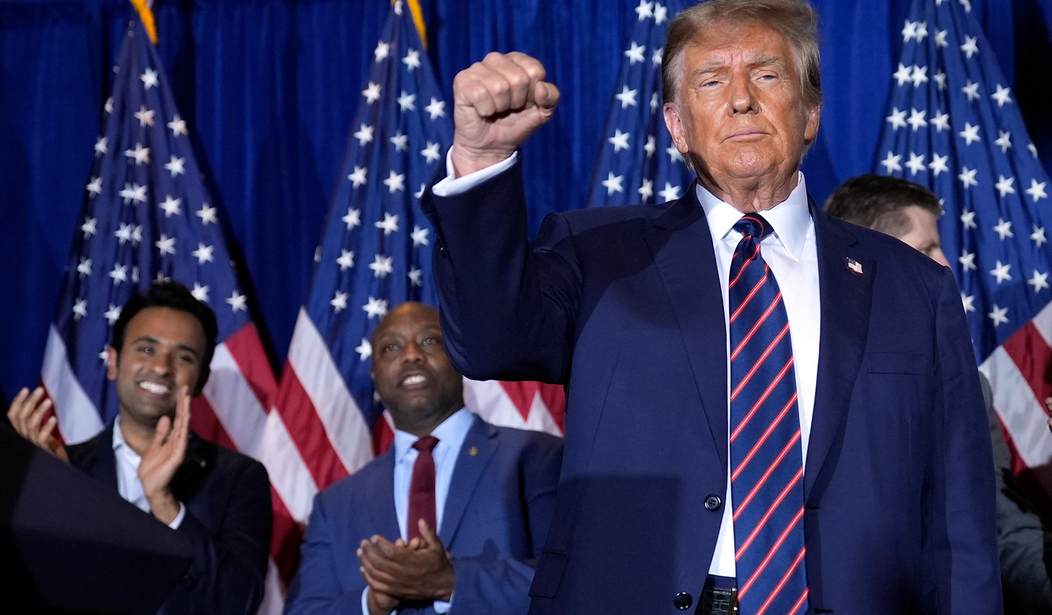On Thursday morning, the Supreme Court will hear oral arguments from attorneys representing former President Donald Trump and those representing a handful of Coloradans who brought legal action in their state that culminated in the state Supreme Court ruling that the 45th president and current 2024 frontrunner was banned from being listed on the primary ballot.
According to the ruling in Colorado, Trump — due to the events of January 6 — is ineligible to be president based on Section 3 of the 14th Amendment that states no one "shall be a Senator or Representatives in Congress, or elector of President and Vice president, or hold any office, civil or military, under the United States, or under any State" if they had "previously taken an oath as a member of Congress, or as an officer of the United States, or as a member of any State legislature, or as an executive or judicial officer of any State, to support the Constitution of the United States," but subsequently "engaged in insurrection or rebellion" against the government.
That decision at the state level barred Colorado's secretary of state from listing Trump's name on the primary ballot but put a hold on that action until the Supreme Court had a chance to rule on its decision. And while the Supreme Court is just considering the Colorado ruling, the outcome will be relevant to other states, such as Maine, where the secretary of state booted Trump from her state's ballot citing the same provision of the 14th Amendment, as well as nearly one dozen other states where the former president's eligibility is being challenged.
Beginning at 10:00 a.m. ET on Thursday, the Supreme Court will hear arguments from both sides in Trump v. Anderson and, while the exact timeline is unknown, the Court's decision in the case could be announced as soon as a few days later. What is known is that this is the biggest election case to be decided by the Supreme Court since 2000's Bush v. Gore — and is likely to set off even more calls from leftists who want to see SCOTUS dismantled, its bench packed, or its authority and role undermined.
Recommended
Lawyers for Trump have called on SCOTUS to "put a swift and decisive end to these ballot-disqualification efforts, which threaten to disenfranchise tens of millions of Americans and which promise to unleash chaos and bedlam if other state courts and state officials follow Colorado's lead and exclude the likely Republican presidential nominee from their ballots" and argued that the Constitution "treats the presidency separately from other federal officers."
As Trump's legal team noted, the "president swears a different oath set forth in Article II, in which he promises to 'preserve, protect, and defend the Constitution of the United States' — and in which the word 'support' is nowhere to be found" — as it is in the 14th Amendment section at issue in the Colorado case.
In an opposing brief, the Colorado voters' legal team — which includes attorneys from Citizens for Responsibility and Ethics in Washington (CREW), a group that has sued Trump before, takes funds from dark money groups tied to George Soros, and has connections with other leftist propaganda outlets such as Media Matters — called Trump's argument "less legal than it is political" and pointed to Trump's statement that there would be "bedlam" if he's not allowed as a choice for voters. "Section 3 is designed precisely to avoid giving oath-breaking insurrectionists like Trump the power to unleash such mayhem again," the lawyers argued.
Beyond the sniping from lawyers advocating for Colorado's decision to stand, Fox News Sunday host Shannon Bream and Fox News Supreme Court Producer Bill Mears highlighted a few of the bigger-picture questions that the Supreme Court will consider in this case:
– Whether state courts or elected state officials can unilaterally enforce constitutional provisions and declare candidates ineligible for federal office — so-called "self-executing" authority — or is that exclusively the jurisdiction of the U.S. Congress. Also, whether Trump can be disqualified without a thorough fact-finding or criminal trial.
– Whether this issue is a purely "political" one that voters should ultimately decide.
– Whether the U.S. Senate's acquittal at his impeachment trial over Jan. 6 makes him therefore eligible to seek re-election.
– And whether Section 3 prohibits individuals only from "holding" office, not from "seeking or winning" election to office.

























Join the conversation as a VIP Member